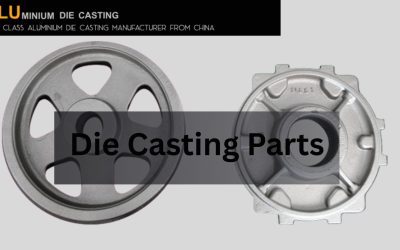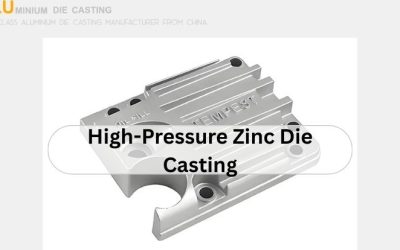Nickel plated hardware refers to metal items coated with a layer of nickel through a process known as electroplating. This method involves depositing a thin layer of nickel onto the surface of various metallic objects, providing them with enhanced properties and appearances.
Importance and Common Uses
Nickel plated hardware holds significant importance across multiple industries due to its durability, corrosion resistance, and aesthetic appeal. It finds widespread use in everyday items such as household fixtures, automotive parts, electronic components, and even in decorative applications due to its ability to improve the appearance and longevity of various metallic objects.
Nickel Plating Process
Explanation of Nickel Plating
Nickel plating is an electrochemical process used to deposit a thin layer of nickel onto a metal surface. It involves immersing the object to be plated into an electrolyte solution containing dissolved nickel salts, applying an electric current, and causing the nickel ions to adhere to the surface of the object, creating a uniform and protective layer.
Steps Involved in Plating Hardware with Nickel
1. Surface Preparation
Before plating, the surface of the metal object must undergo thorough cleaning and preparation. This often involves removing any dirt, grease, or old coatings through processes like sandblasting, polishing, or chemical treatments to ensure proper adhesion of the nickel layer.
2. Cleaning
The metal object undergoes a meticulous cleaning process to eliminate any remaining contaminants. This step is crucial to ensure a clean surface for optimal adhesion of the nickel layer. It may involve solvent cleaning, alkaline cleaning, or acid treatments depending on the material and condition of the object.
3. Electroplating Process
The cleaned and prepared object is immersed in an electrolyte solution containing dissolved nickel salts. A direct electric current is then passed through the solution, causing the positively charged nickel ions to be attracted to the negatively charged metal object. This results in the deposition of a thin, uniform layer of nickel onto the surface of the object.
4. Finishing Touches
After the electroplating process, the nickel-plated hardware may undergo additional treatments or finishes to enhance its appearance, improve corrosion resistance, or add specific properties. This could involve rinsing, drying, polishing, or applying protective coatings to achieve the desired final characteristics of the plated hardware.
Advantages of Nickel Plated Hardware
Durability and Corrosion Resistance
Nickel plated hardware exhibits exceptional durability and robustness due to the protective layer of nickel. This plating offers excellent resistance against corrosion, oxidation, and wear, ensuring the longevity of the underlying metal and providing a protective barrier against environmental elements, moisture, and harsh conditions.
Aesthetic Appeal
The aesthetic appeal of nickel plated hardware is a significant advantage. The shiny, lustrous finish of nickel adds a visually appealing touch to various objects, enhancing their appearance and making them more attractive for decorative purposes. The smooth, polished surface of nickel plating can complement different styles and designs, contributing to the overall aesthetics of the item.
Easy Maintenance
Another advantage of nickel plated hardware is its ease of maintenance. The smooth surface of nickel plating resists tarnishing and is relatively easy to clean. Routine maintenance typically involves gentle cleaning with mild soap and water, making it convenient for homeowners and industries alike to maintain the appearance and functionality of nickel plated hardware with minimal effort. Read more about Matte Black Anodized Aluminum
Common Types of Nickel Plated Hardware
Examples in Various Industries (Automotive, Home, Electronics, etc.)
Nickel plated hardware finds extensive use across diverse industries. In the automotive sector, it’s utilized in engine components, trim pieces, and fasteners due to its corrosion resistance. In households, nickel plated hardware is present in door handles, faucets, knobs, and other fixtures for its durability and aesthetic appeal. Moreover, the electronics industry incorporates it in connectors, switches, and even within electronic devices for its conductivity and protection against corrosion.
Diverse Applications (Screws, Nuts, Bolts, Tools, etc.)
Nickel plated hardware is employed in a wide array of applications. Commonly used in screws, nuts, and bolts, the nickel plating provides these fasteners with increased resistance to rust and wear, extending their lifespan. Tools such as wrenches, sockets, and various hand tools benefit from nickel plating due to their protective properties against abrasion and corrosion, enhancing their longevity and performance in various working environments.
Care and Maintenance of Nickel Plated Hardware
Cleaning Tips
- Use mild soap and water: Clean nickel plated hardware regularly with a soft cloth or sponge and mild soap to remove dirt and grime. Rinse thoroughly and dry with a clean, soft cloth to prevent water spots.
- Avoid abrasive cleaners: Refrain from using harsh or abrasive cleaners as they can scratch the nickel plating and diminish its luster.
- Use non-abrasive polishes: Occasionally, apply a non-abrasive metal polish specifically designed for nickel surfaces to restore shine and remove minor tarnishing.
Avoiding Damage and Corrosion
- Prevent exposure to harsh chemicals: Avoid contact with harsh chemicals, including ammonia and bleach, as they can damage the nickel plating. Wipe off any spills immediately.
- Handle with care: Minimize impacts and scratches by handling nickel plated hardware gently and avoiding rough usage that may cause damage to the plated surface.
- Store properly: Store items in a dry environment away from moisture to prevent corrosion or tarnishing of the nickel plating.
Longevity and Preservation Techniques
- Apply protective coatings: Consider applying a clear lacquer or protective coating to nickel plated items, especially those exposed to outdoor elements, to enhance durability and protect against corrosion.
- Regular inspections: Periodically inspect nickel plated hardware for signs of wear, corrosion, or damage. Promptly address any issues to prevent further deterioration.
- Professional restoration: For antique or valuable nickel plated items showing signs of significant wear, consider professional restoration services to refurbish and preserve their original appearance.
Recap of Benefits and Uses of Nickel Plated Hardware
Nickel plated hardware offers a range of advantages, including durability, corrosion resistance, aesthetic appeal, and easy maintenance. Its protective layer of nickel enhances the lifespan of various metal objects, making it a popular choice across industries such as automotive, household, electronics, and more. This plating is commonly used in screws, nuts, bolts, tools, and numerous other applications due to its protective and decorative properties.
Final Thoughts
Nickel plated hardware stands as a testament to the effectiveness of electroplating technology in improving the functionality and appearance of metal objects. Its widespread use in everyday items underscores its importance in enhancing both the durability and aesthetic value of various products. With proper care and maintenance, nickel plated hardware can maintain its lustre and functionality for an extended period, making it a valuable choice in numerous industries and applications.
Welcome to GC Precision Mould, your foremost destination for premium services as a die casting manufacturer and Mold Maker in China. Our specialization lies in crafting top-notch plastic molds, aluminum die casting mold, and a diverse array of die-cast parts, utilizing materials such as aluminum, zinc, and magnesium.
At GC Precision Mould, we are steadfast in delivering unparalleled services for spray painting anodized aluminum and other casting products. Our seasoned team of engineers and technicians employs the latest technology and cutting-edge techniques to ensure that every part we produce not only adheres to but exceeds the highest standards of quality and accuracy.
Our product range finds applications across various industries, including automotive, consumer electronics, medical, and industrial equipment. Working closely with our clients, we delve into their specific needs, enabling us to develop tailored solutions that precisely align with their unique anodized aluminum spray painting requirements.
Whether your project demands a single plastic mold or a complete die casting production line, our extensive expertise and resources position us to deliver exceptional results. Reach out to us today to delve deeper into our services and discover how we can contribute to achieving your manufacturing goals.
If you’re embarking on a project that requires Die casting China for anodized aluminum or seeking mold suppliers for injection molding products with spray paint finishes, connect with us to obtain the best prices and superior service. Your success is paramount, and we look forward to supporting your aluminum die casting endeavors.





0 Comments